Map or Compass? The Bible on Violence
Published: Oct 2022
£70.00
The interpretation of biblical violence continues to present a complex challenge to interpreters, including those from belief, no belief and religious perspectives. Placing this interpretative task within the frame of generous collaboration, irenic listening, and multidisciplinary scholarship allows new perspectives to surface.
These principles were key to the range of papers given at the second annual conference in 2020 of the Bristol Centre for the Study of Bible and Violence in 2020—a postgraduate research and study centre dedicated to the interpretation of biblical texts of violence.
This edited book includes:
• three chapters which grapple with the violence of the conquest of Canaan —from Paul Copan, William Ford, and Helen Paynter;
• further explorations of violence in Deuteronomy, Judges, Ezekiel and Revelation;
• Mary Magdalene and modern sexual violence;
• Esther and Quentin Tarantino;
• contemporary representations of the crucifixion, forced marriage in Christian pedagogic materials, and a cross-reading of abattoirs
and the crucifixion.
This is the second of, at least, four volumes providing resources for researchers and in the classroom exploring the intersection between violence and biblical texts.
Map or Compass? The Bible on Violence
£70.00
The interpretation of biblical violence continues to present a complex challenge to interpreters, including those from belief, no belief and religious perspectives. Placing this interpretative task within the frame of generous collaboration, irenic listening, and multidisciplinary scholarship allows new perspectives to surface.
These principles were key to the range of papers given at the second annual conference in 2020 of the Bristol Centre for the Study of Bible and Violence in 2020—a postgraduate research and study centre dedicated to the interpretation of biblical texts of violence.
This edited book includes:
• three chapters which grapple with the violence of the conquest of Canaan —from Paul Copan, William Ford, and Helen Paynter;
• further explorations of violence in Deuteronomy, Judges, Ezekiel and Revelation;
• Mary Magdalene and modern sexual violence;
• Esther and Quentin Tarantino;
• contemporary representations of the crucifixion, forced marriage in Christian pedagogic materials, and a cross-reading of abattoirs
and the crucifixion.
This is the second of, at least, four volumes providing resources for researchers and in the classroom exploring the intersection between violence and biblical texts.
Violent Biblical Texts: New Approaches
Published: Oct 2022
£70.00
This volume is one of the fruits of a series of international conferences held at the Centre for the Study of Bible and Violence, Bristol. The thirteen articles included here have been assembled for the specific purpose of offering explicitly religious perspectives on biblical violence from a globally diverse group of Christian scholars.
Each author faces the challenge of how to interpret violent biblical texts in ways that remain situated within a Christian construct of the Bible. These raise major challenges—via ethically confounding texts—to providing a theologically coherent interpretation of biblical violence. Each writer, in turn, offers creative and constructive ways forward in dealing with the most problematic biblical material, based on two criteria:
• addressing a particular text or hermeneutical issue in view;
• advancing an approach that is applicable to other biblical texts.
The hermeneutical approaches are neither naïve nor sceptical but rather seek to off er innovative and fruitful avenues for interpreting the text from within the Christian religion.
This book offers a variety of resources to aid the interpretation from within a specifically Christian frame of reference. Of particular note is the round-table discussion, where three leading scholars in the study of the Canaanite conquest (Paul Copan, David Firth and William Ford) dialogue with one another on the subject, in a conversation moderated by Helen Paynter.
Violent Biblical Texts: New Approaches
£70.00
This volume is one of the fruits of a series of international conferences held at the Centre for the Study of Bible and Violence, Bristol. The thirteen articles included here have been assembled for the specific purpose of offering explicitly religious perspectives on biblical violence from a globally diverse group of Christian scholars.
Each author faces the challenge of how to interpret violent biblical texts in ways that remain situated within a Christian construct of the Bible. These raise major challenges—via ethically confounding texts—to providing a theologically coherent interpretation of biblical violence. Each writer, in turn, offers creative and constructive ways forward in dealing with the most problematic biblical material, based on two criteria:
• addressing a particular text or hermeneutical issue in view;
• advancing an approach that is applicable to other biblical texts.
The hermeneutical approaches are neither naïve nor sceptical but rather seek to off er innovative and fruitful avenues for interpreting the text from within the Christian religion.
This book offers a variety of resources to aid the interpretation from within a specifically Christian frame of reference. Of particular note is the round-table discussion, where three leading scholars in the study of the Canaanite conquest (Paul Copan, David Firth and William Ford) dialogue with one another on the subject, in a conversation moderated by Helen Paynter.
A Theology of Genocide? : Reading Deuteronomy 20
Published: Oct 2021
£70.00
The twentieth century has been described, not without justification, as the 'Century of Genocide'. Whole groups of people have been targeted for slaughter because of their ethnicity or religion, from Armenia to Rwanda. Against this background, how are we to understand the command in Deuteronomy to 'not leave alive anything that breathes' of the Canaanite nations present in the Promised Land (Deut 20.17-18)?
In this penetrating study, Milner begins by asking if this passage has been used to justify genocidal violence (it has, but not nearly as much as some have thought). He then considers how such texts have been understood, demonstrating that most readers have taken the passage allegorically, as a metaphor for the interior struggle against sin.
That may seem to be too easy a solution. Yet, looking at modern historical and literary analyses of the text, Milner shows that the original audiences of this passage would also have taken it symbolically, since they lived many generations after the 'narrated time' of the Conquest when no Canaanites populations remained to be exterminated. Further, the narrative itself demonstrates that the 'military option' was a complete failure, and does not commend it to the audience of the text.
Milner argues that God no more commanded genocide than he wandered about in the evening breeze in Eden (Gen 3:8) or encouraged Satan to persecute and tempt Job (Job 1-2). This is by no means a new insight, he says, tracing it back to early Christian theologians, particularly Origen and Gregory of Nyssa, who argued that passages not 'worthy of God' should not be interpreted literally.
A Theology of Genocide? : Reading Deuteronomy 20
£70.00
The twentieth century has been described, not without justification, as the 'Century of Genocide'. Whole groups of people have been targeted for slaughter because of their ethnicity or religion, from Armenia to Rwanda. Against this background, how are we to understand the command in Deuteronomy to 'not leave alive anything that breathes' of the Canaanite nations present in the Promised Land (Deut 20.17-18)?
In this penetrating study, Milner begins by asking if this passage has been used to justify genocidal violence (it has, but not nearly as much as some have thought). He then considers how such texts have been understood, demonstrating that most readers have taken the passage allegorically, as a metaphor for the interior struggle against sin.
That may seem to be too easy a solution. Yet, looking at modern historical and literary analyses of the text, Milner shows that the original audiences of this passage would also have taken it symbolically, since they lived many generations after the 'narrated time' of the Conquest when no Canaanites populations remained to be exterminated. Further, the narrative itself demonstrates that the 'military option' was a complete failure, and does not commend it to the audience of the text.
Milner argues that God no more commanded genocide than he wandered about in the evening breeze in Eden (Gen 3:8) or encouraged Satan to persecute and tempt Job (Job 1-2). This is by no means a new insight, he says, tracing it back to early Christian theologians, particularly Origen and Gregory of Nyssa, who argued that passages not 'worthy of God' should not be interpreted literally.
The Bible on Violence: A Thick Description.
Published: July 2020
£70.00
In June 2019 the Centre for the Study of Bible and Violence (CSBV) held its inaugural academic conference, and we are delighted to present this collection of papers drawn from those presented at the event. The centre is a postgraduate research and study centre dedicated to working in the area of the interpretation of biblical texts of violence. This wide-ranging collection reflects the centre's core values of generous collaboration, irenic listening, and multidisciplinary scholarship.
Biblical violence presents a complex challenge to the biblical interpreter, the cultural commentator and to belief communities. In the pluriformity of interpretative approaches, the violent texts of the Bible have been taken up in ways that sometimes advance and sometimes challenge violence. Thus, biblical violence cannot be 'solved' by the application of a single hermeneutical lens: this is a multidisciplinary and intercommunal problem requiring a range of approaches.
With contributions from both emerging and established academics, and scholars from several different belief traditions, and none, this volume both offers and models a 'thick description' of biblical violence. Two papers, including our keynote address from James Crossley, critically consider the use of biblical texts for the promotion of violence. A cluster of papers offer novel interpretive approaches to a wide range of texts of biblical violence, from both testaments and a range of genres. A further section brings the Bible into conversation with diverse elements of modern violence, from Grenfell Tower to suicide bombing. In the final part, the focus is on sexual violence, including a critical discourse analysis of divorce sermons and an exploration of the value to modern abuse survivors of naming Jesus as the victim of sexual abuse.
The Bible on Violence: A Thick Description.
£70.00
In June 2019 the Centre for the Study of Bible and Violence (CSBV) held its inaugural academic conference, and we are delighted to present this collection of papers drawn from those presented at the event. The centre is a postgraduate research and study centre dedicated to working in the area of the interpretation of biblical texts of violence. This wide-ranging collection reflects the centre's core values of generous collaboration, irenic listening, and multidisciplinary scholarship.
Biblical violence presents a complex challenge to the biblical interpreter, the cultural commentator and to belief communities. In the pluriformity of interpretative approaches, the violent texts of the Bible have been taken up in ways that sometimes advance and sometimes challenge violence. Thus, biblical violence cannot be 'solved' by the application of a single hermeneutical lens: this is a multidisciplinary and intercommunal problem requiring a range of approaches.
With contributions from both emerging and established academics, and scholars from several different belief traditions, and none, this volume both offers and models a 'thick description' of biblical violence. Two papers, including our keynote address from James Crossley, critically consider the use of biblical texts for the promotion of violence. A cluster of papers offer novel interpretive approaches to a wide range of texts of biblical violence, from both testaments and a range of genres. A further section brings the Bible into conversation with diverse elements of modern violence, from Grenfell Tower to suicide bombing. In the final part, the focus is on sexual violence, including a critical discourse analysis of divorce sermons and an exploration of the value to modern abuse survivors of naming Jesus as the victim of sexual abuse.
The Reality of Religious Violence: From Biblical to Modern Times
Published: Sep 2019
£75.00
Violence and religion have been interacting from the beginning of recorded history according to The Reality of Religious Violence: From Biblical to Modern Times. This book addresses two major questions: 1. Does religious violence exist? 2. If so, how is it different from other types of violence?
The first question is a reaction to a whole stream of scholarship led by William T. Cavanaugh, author of The Myth of Religious Violence (2009), which denies that religious violence is a specific category of violence over against many other types of violence that we can name. The second question is whether 'religious violence' is a useful category at all.
This book argues that religious violence is not only a useful category, but also a necessary one if we are to understand our history and seek solutions. It is true, nevertheless, that wars and other types of violence can be caused by problems that have nothing to do with religion.
What is central to this book is the ethical quality of religious violence. Non-religious violence arises from causes one can detect (e.g. oil, water, money). Religious violence does not have any detectable cause, since there is no supernatural force or being that we can identify as the cause. That is what makes religious violence more tragic. Detailed examples are drawn from the Hebrew Bible, Christian texts, and Muslim texts.
The Reality of Religious Violence: From Biblical to Modern Times
£75.00
Violence and religion have been interacting from the beginning of recorded history according to The Reality of Religious Violence: From Biblical to Modern Times. This book addresses two major questions: 1. Does religious violence exist? 2. If so, how is it different from other types of violence?
The first question is a reaction to a whole stream of scholarship led by William T. Cavanaugh, author of The Myth of Religious Violence (2009), which denies that religious violence is a specific category of violence over against many other types of violence that we can name. The second question is whether 'religious violence' is a useful category at all.
This book argues that religious violence is not only a useful category, but also a necessary one if we are to understand our history and seek solutions. It is true, nevertheless, that wars and other types of violence can be caused by problems that have nothing to do with religion.
What is central to this book is the ethical quality of religious violence. Non-religious violence arises from causes one can detect (e.g. oil, water, money). Religious violence does not have any detectable cause, since there is no supernatural force or being that we can identify as the cause. That is what makes religious violence more tragic. Detailed examples are drawn from the Hebrew Bible, Christian texts, and Muslim texts.
Sexuality, Ideology and the Bible: Antipodean Engagements
Published: Sep 2015
£60.00
What happens when explorations of sexuality, gender and the Bible go down under? This fascinating collection of essays, written by scholars located in the Antipodes, traverses the highly contested landscapes of sexuality, gender and biblical studies, revealing a myriad of sexual discourses voiced within both the biblical texts and their interpretative traditions. Recognizing that textual meaning is always shaped by the cultural and contextual baggage the reader brings to the interpretative task, contributors raise provocative questions about the meanings, identities and ideologies that surround biblical discourses of sexuality and gender, exploring how these have been and can be reshaped and reconceived.
Deane Galbraith examines the theological reflections of Augustine and Paul on Adam's 'perfect penis' in Eden while Roland Boer explores the earthy biblical vocabulary used to depict female genitalia. Christina Petterson, meanwhile, examines the Moravian Brethren's celebration of a Christ who bore on his body male and female genitalia. Travelling beyond the sexualized human body, Emily Colgan considers the problematic language of gender violence against the land that is voiced in Jeremiah. Elaine Wainwright blurs and queers the binary categories of human and non-human in the Sermon on the Mount. Yael Klangwisan continues this blurring of boundaries through her creative reading of Song of Songs.
Moving from the gendered body to the gendered voice, Alan Cadwallader probes Paul's rhetorical gender-bending in his 'masculinized' oral culture. Caroline Blyth and Teguh Wijaya Mulya empower Delilah to vocalize her queer potential in both the biblical narrative and popular culture. Gillian Townsley adds her own Kiwi voice to explore queer possibilities in Philippians 4.2-3 in the light of New Zealand's same-sex marriage legislation. The volume concludes with a queer reconsideration of the Antipodes themselves from the perspective of a northern-hemisphere biblical scholar, Hugh Pyper.
This compelling collection will make a substantive contribution to the bookshelves of scholars and interested readers in such areas as biblical studies, religion and gender-queer studies.
Sexuality, Ideology and the Bible: Antipodean Engagements
£60.00
What happens when explorations of sexuality, gender and the Bible go down under? This fascinating collection of essays, written by scholars located in the Antipodes, traverses the highly contested landscapes of sexuality, gender and biblical studies, revealing a myriad of sexual discourses voiced within both the biblical texts and their interpretative traditions. Recognizing that textual meaning is always shaped by the cultural and contextual baggage the reader brings to the interpretative task, contributors raise provocative questions about the meanings, identities and ideologies that surround biblical discourses of sexuality and gender, exploring how these have been and can be reshaped and reconceived.
Deane Galbraith examines the theological reflections of Augustine and Paul on Adam's 'perfect penis' in Eden while Roland Boer explores the earthy biblical vocabulary used to depict female genitalia. Christina Petterson, meanwhile, examines the Moravian Brethren's celebration of a Christ who bore on his body male and female genitalia. Travelling beyond the sexualized human body, Emily Colgan considers the problematic language of gender violence against the land that is voiced in Jeremiah. Elaine Wainwright blurs and queers the binary categories of human and non-human in the Sermon on the Mount. Yael Klangwisan continues this blurring of boundaries through her creative reading of Song of Songs.
Moving from the gendered body to the gendered voice, Alan Cadwallader probes Paul's rhetorical gender-bending in his 'masculinized' oral culture. Caroline Blyth and Teguh Wijaya Mulya empower Delilah to vocalize her queer potential in both the biblical narrative and popular culture. Gillian Townsley adds her own Kiwi voice to explore queer possibilities in Philippians 4.2-3 in the light of New Zealand's same-sex marriage legislation. The volume concludes with a queer reconsideration of the Antipodes themselves from the perspective of a northern-hemisphere biblical scholar, Hugh Pyper.
This compelling collection will make a substantive contribution to the bookshelves of scholars and interested readers in such areas as biblical studies, religion and gender-queer studies.
Religion and Violence: The Biblical Heritage
Published: Jun 2015
£14.50 – £35.00
Violence that is motivated by--and justified by--religious ideas, authorities and texts is everywhere around us. Some say that the origins of religion and human violence are inherently connected, and that the explanation for religious violence lies at the heart of the religious imagination itself, others that human violence was there long before religion ever came about, being no more than an unfortunate by-product of human evolution. Reconsidering the question of religion and violence in the biblical heritage is a narrower--but nonetheless essential--endeavour, to which the present volume addresses itself.
After an introductory chapter by the editors on religion, violence and the Bible, Ziony Zevit writes on violence in Israelite culture and in the Bible, Tamar Kamionkowski on violence in prophetic literature, Stephen Geller on the prophetic roots of religious violence, David Wright on homicide, talion and vengeance in the Covenant Code, Lawrence Wills on the death of the hero and the violent death of Jesus, Jennifer Wright Knust on sacrifice and sacred text in Justin, and David Frankfurter on vengeance fantasies in the New Testament. Stephen Marini offers concluding reflections on religion and violence under the rubric of conflict, subversion and sacrifice.
Religion and Violence: The Biblical Heritage
£14.50 – £35.00
Violence that is motivated by--and justified by--religious ideas, authorities and texts is everywhere around us. Some say that the origins of religion and human violence are inherently connected, and that the explanation for religious violence lies at the heart of the religious imagination itself, others that human violence was there long before religion ever came about, being no more than an unfortunate by-product of human evolution. Reconsidering the question of religion and violence in the biblical heritage is a narrower--but nonetheless essential--endeavour, to which the present volume addresses itself.
After an introductory chapter by the editors on religion, violence and the Bible, Ziony Zevit writes on violence in Israelite culture and in the Bible, Tamar Kamionkowski on violence in prophetic literature, Stephen Geller on the prophetic roots of religious violence, David Wright on homicide, talion and vengeance in the Covenant Code, Lawrence Wills on the death of the hero and the violent death of Jesus, Jennifer Wright Knust on sacrifice and sacred text in Justin, and David Frankfurter on vengeance fantasies in the New Testament. Stephen Marini offers concluding reflections on religion and violence under the rubric of conflict, subversion and sacrifice.
Poverty, Wealth, and Empire: Jesus and Postcolonial Criticism
Published: Mar 2014
£45.00
Poverty, Wealth, and Empire presents an antidote to the liberal Jesuses that are constantly being constructed by theologians and historians in universities and seminaries in the West. Sandford's programme is to pay attention to those texts where Jesus appears hostile to his audiences, or even invokes the idea of divine judgment and violence against certain groups. Drawing on a variety of texts in the synoptic gospels, Sandford finds violent denouncements of the rich and those who neglect the needy to be a consistent theme in Jesus' teaching.
Rather than deploying biblical texts to support an anti-imperial or liberationist agenda, Sandford foregrounds troubling and problematic texts. Among them are wisdom sayings that justify poverty, texts that denigrate particular ethnic groups, and the ideology inherent in Jesus' teachings about the 'the Kingdom of God'. On such a basis Sandford is able to call into question the effectiveness of mainline Christian scholarly interpretations of Jesus in dealing with the most profound ethical problems of our time: poverty, domination and violence.
Always alert to the assumptions and prejudices of much Western New Testament scholarship, Sandford draws attention to its intellectual contradictions, and, furthermore, to the way in which this scholarship has sometimes served to undergird and justify systems of oppression —in particular by its demonstrable dodging of the issue of material poverty and its causes. Building on recent debates in postcolonial biblical criticism, Sandford offers a decidedly 'illiberal' reading of Jesus' sayings on divine judgment, focusing on the paradoxical idea of a 'nonviolent' Jesus who nevertheless pronounces divine violence upon the rich.
Poverty, Wealth, and Empire: Jesus and Postcolonial Criticism
£45.00
Poverty, Wealth, and Empire presents an antidote to the liberal Jesuses that are constantly being constructed by theologians and historians in universities and seminaries in the West. Sandford's programme is to pay attention to those texts where Jesus appears hostile to his audiences, or even invokes the idea of divine judgment and violence against certain groups. Drawing on a variety of texts in the synoptic gospels, Sandford finds violent denouncements of the rich and those who neglect the needy to be a consistent theme in Jesus' teaching.
Rather than deploying biblical texts to support an anti-imperial or liberationist agenda, Sandford foregrounds troubling and problematic texts. Among them are wisdom sayings that justify poverty, texts that denigrate particular ethnic groups, and the ideology inherent in Jesus' teachings about the 'the Kingdom of God'. On such a basis Sandford is able to call into question the effectiveness of mainline Christian scholarly interpretations of Jesus in dealing with the most profound ethical problems of our time: poverty, domination and violence.
Always alert to the assumptions and prejudices of much Western New Testament scholarship, Sandford draws attention to its intellectual contradictions, and, furthermore, to the way in which this scholarship has sometimes served to undergird and justify systems of oppression —in particular by its demonstrable dodging of the issue of material poverty and its causes. Building on recent debates in postcolonial biblical criticism, Sandford offers a decidedly 'illiberal' reading of Jesus' sayings on divine judgment, focusing on the paradoxical idea of a 'nonviolent' Jesus who nevertheless pronounces divine violence upon the rich.
Encountering Violence in the Bible
Published: Oct 2013
£60.00
Our world is full of violence, with repeated acts of terrorism and generally rising rates of violent criminal acts as the most obvious forms of the phenomenon in the Western world. It even reached the peaceful shores of Norway in the summer of 2011. This was one of the reasons why the first international meeting of the Norwegian Summer Academy for Biblical Studies was devoted to the topic 'Violence as an Ethical Challenge in the Bible'.
Eighteen biblical scholars from nine different countries (Joshua Berman, Lennart Bostršm, Friedmann Eissler, Torleif Elgvin, LarsOlov Eriksson, Karin Finsterbusch, Georg Fischer, Terence E. Fretheim, Hallvard Hagelia, Dana M. Harris, Robert L. Hubbard, Jr, ÌÉrstein Justnes, Gordon McConville, Kirsten Nielsen, Tommy Wasserman, Karl William Weyde, Peter Wick and Markus Zehnder) met on the beautiful premises of Ansgar Theological Seminary to discuss some of the most fundamental aspects of the topic. The papers presented at the conference are collected in the present volume, dealing mostly with the Hebrew Bible, but covering also the New Testament, Jewish literature from the Second Temple period and the Qur'an.
The contributions reflect a refreshing variety of scholarly and theological approaches. One of the fundamental questions addressed in several studies is how biblical texts justifying violence can be properly understood and used today. Other questions raised are how violent some of the often-criticized biblical passages really are and how violence can be overcome.
Encountering Violence in the Bible
£60.00
Our world is full of violence, with repeated acts of terrorism and generally rising rates of violent criminal acts as the most obvious forms of the phenomenon in the Western world. It even reached the peaceful shores of Norway in the summer of 2011. This was one of the reasons why the first international meeting of the Norwegian Summer Academy for Biblical Studies was devoted to the topic 'Violence as an Ethical Challenge in the Bible'.
Eighteen biblical scholars from nine different countries (Joshua Berman, Lennart Bostršm, Friedmann Eissler, Torleif Elgvin, LarsOlov Eriksson, Karin Finsterbusch, Georg Fischer, Terence E. Fretheim, Hallvard Hagelia, Dana M. Harris, Robert L. Hubbard, Jr, ÌÉrstein Justnes, Gordon McConville, Kirsten Nielsen, Tommy Wasserman, Karl William Weyde, Peter Wick and Markus Zehnder) met on the beautiful premises of Ansgar Theological Seminary to discuss some of the most fundamental aspects of the topic. The papers presented at the conference are collected in the present volume, dealing mostly with the Hebrew Bible, but covering also the New Testament, Jewish literature from the Second Temple period and the Qur'an.
The contributions reflect a refreshing variety of scholarly and theological approaches. One of the fundamental questions addressed in several studies is how biblical texts justifying violence can be properly understood and used today. Other questions raised are how violent some of the often-criticized biblical passages really are and how violence can be overcome.
Wrestling with Textual Violence: The Jephthah Narrative in Antiquity and Modernity
Published: Oct 2006
£50.00
A story of a judge who sacrifices his virgin daughter is of course an issue both in ethics and in gender studies. Such is the biblical narrative of Jephthah. Sjöberg undertakes a comparative analysis of six different versions of the Jephthah narrative: the biblical tale in the book of Judges, the Jewish telling in Pseudo-Philo's Liber antiquitatum biblicarum (first century CE), Josephus's report in his Jewish Antiquities (also first century CE), Handel's oratorio Jephtha (1751), the British author E.L. Grant Watson's novel A Mighty Man of Valour (1939), set in Australia, and the short story by the Israeli novelist Amos Oz, 'Upon This Evil Earth' (1981).
Five main interpretative strategies are uncovered in this remarkable analysis: condemnation, identification, glorification, alienation and censure. Each strategy affects in different ways the reader's assessment of power relations in the story and the reader's own willingness to change.
In a final move, Sjöberg embarks on a critical discussion of the programmes of Elisabeth Schüssler Fiorenza and Daniel Patte for an ethics of biblical interpretation. Sjšberg advocates an interpretative pluralism, arguing that biblical studies should stand in the service of the general public.
Wrestling with Textual Violence: The Jephthah Narrative in Antiquity and Modernity
£50.00
A story of a judge who sacrifices his virgin daughter is of course an issue both in ethics and in gender studies. Such is the biblical narrative of Jephthah. Sjöberg undertakes a comparative analysis of six different versions of the Jephthah narrative: the biblical tale in the book of Judges, the Jewish telling in Pseudo-Philo's Liber antiquitatum biblicarum (first century CE), Josephus's report in his Jewish Antiquities (also first century CE), Handel's oratorio Jephtha (1751), the British author E.L. Grant Watson's novel A Mighty Man of Valour (1939), set in Australia, and the short story by the Israeli novelist Amos Oz, 'Upon This Evil Earth' (1981).
Five main interpretative strategies are uncovered in this remarkable analysis: condemnation, identification, glorification, alienation and censure. Each strategy affects in different ways the reader's assessment of power relations in the story and the reader's own willingness to change.
In a final move, Sjöberg embarks on a critical discussion of the programmes of Elisabeth Schüssler Fiorenza and Daniel Patte for an ethics of biblical interpretation. Sjšberg advocates an interpretative pluralism, arguing that biblical studies should stand in the service of the general public.

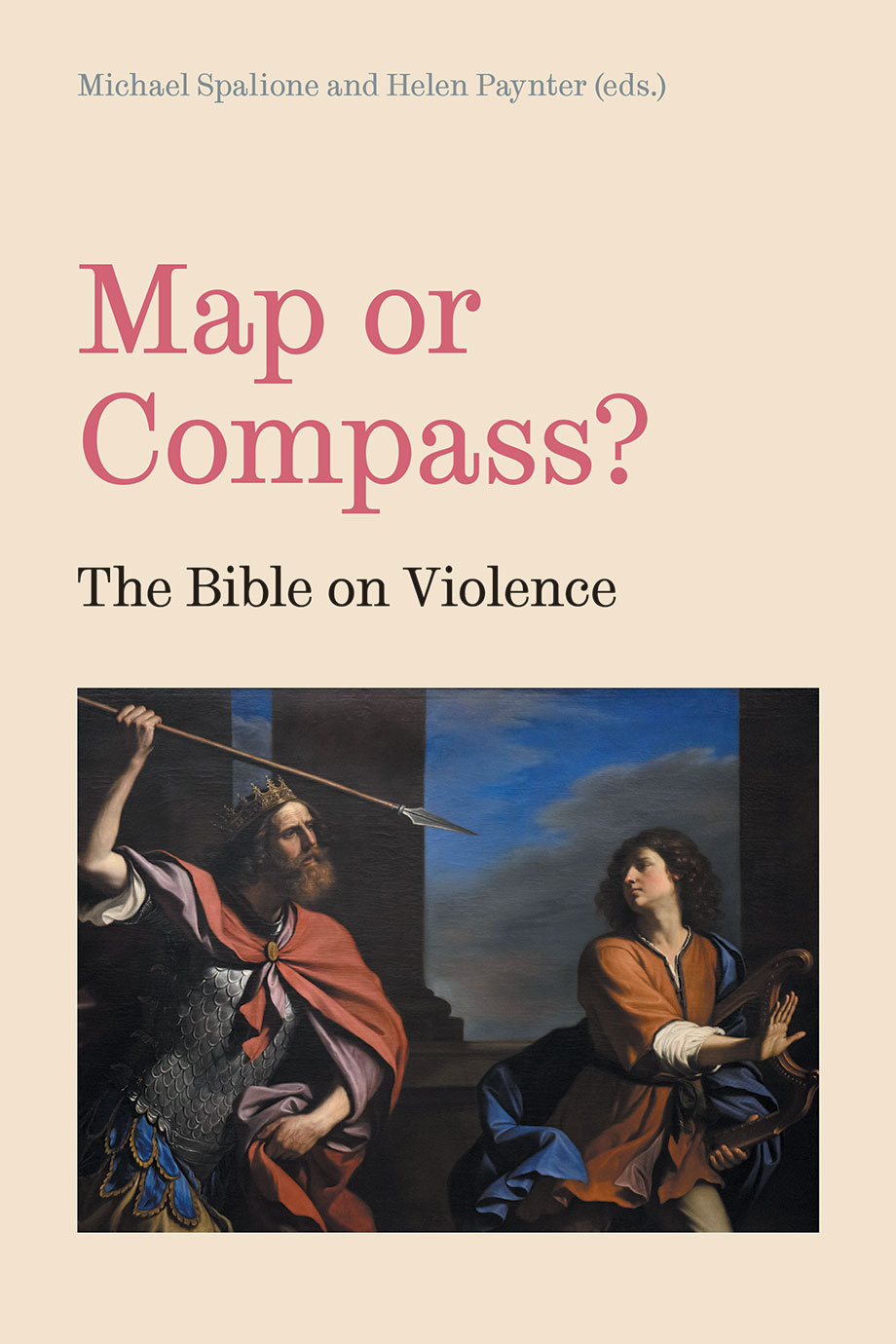
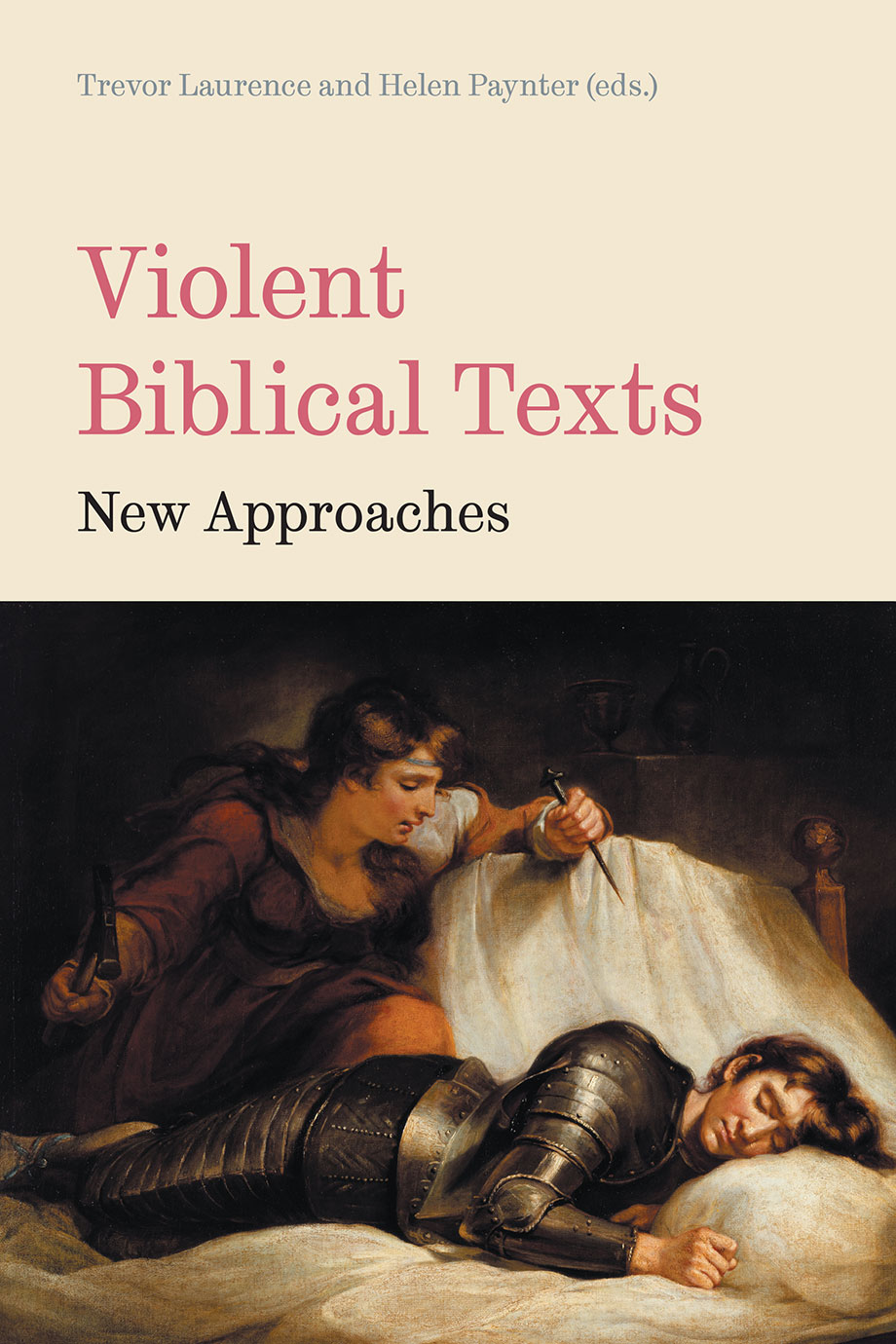
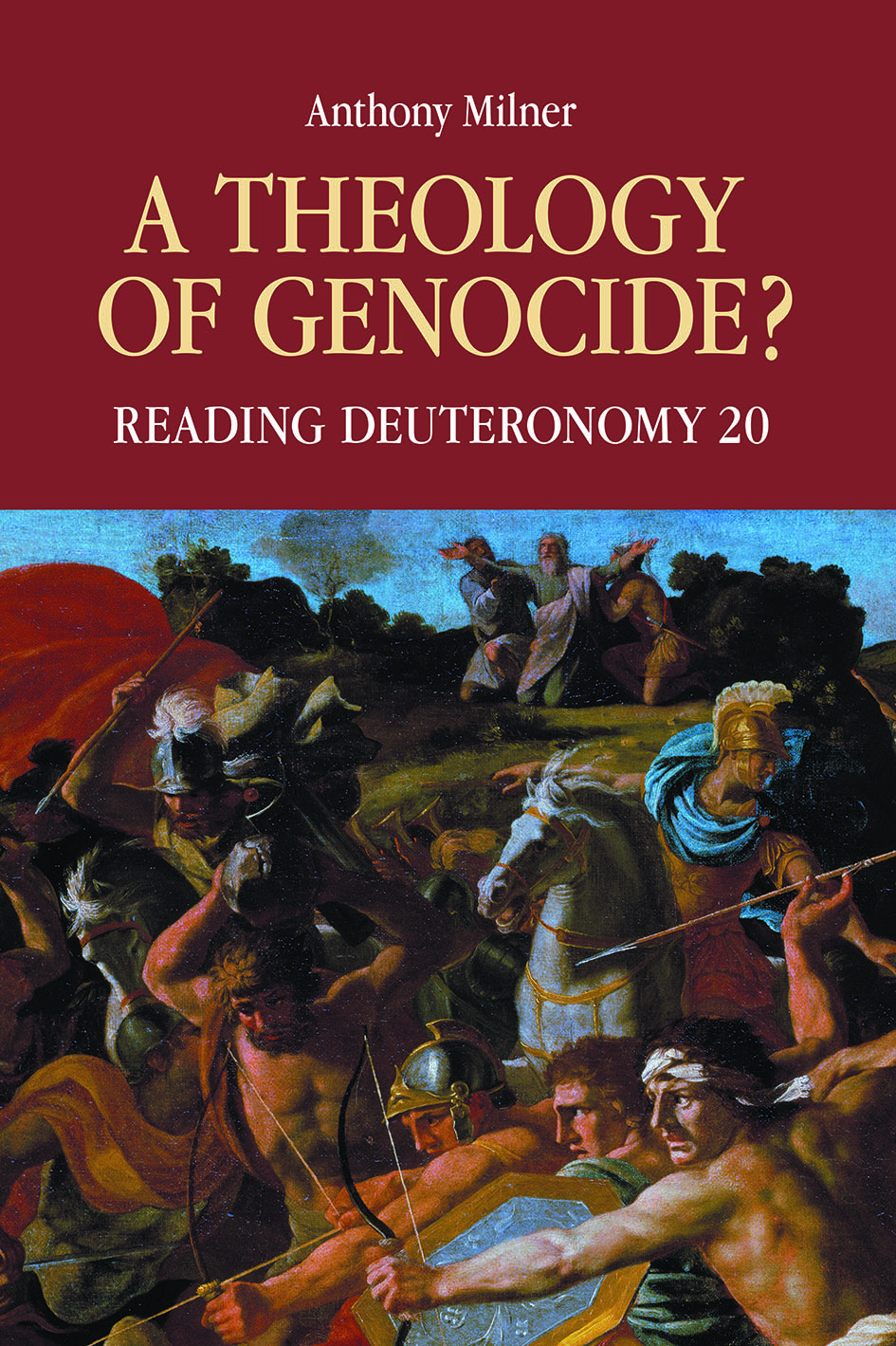
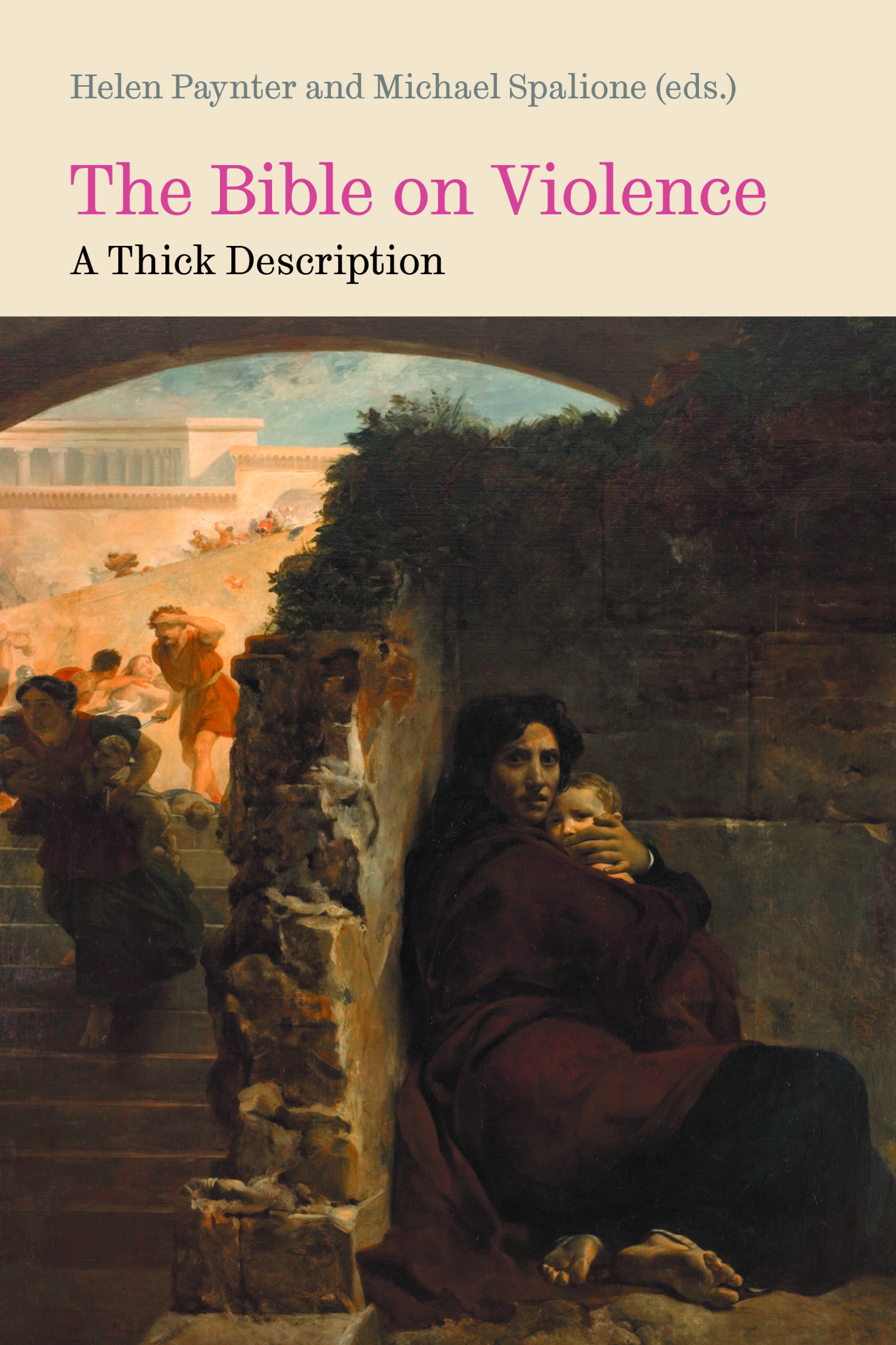

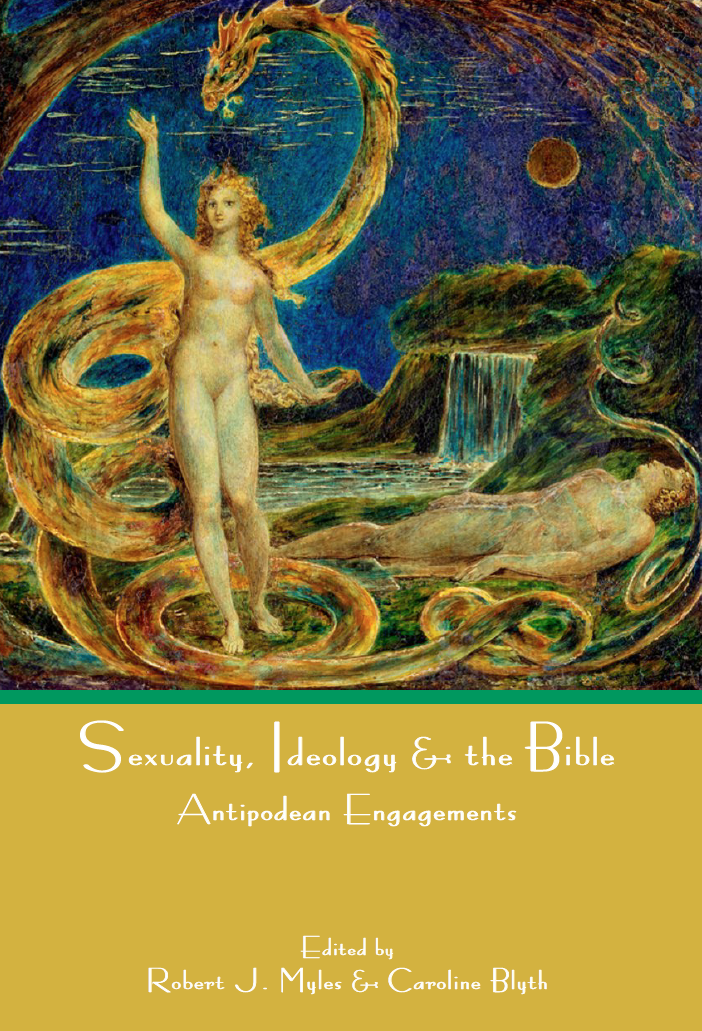

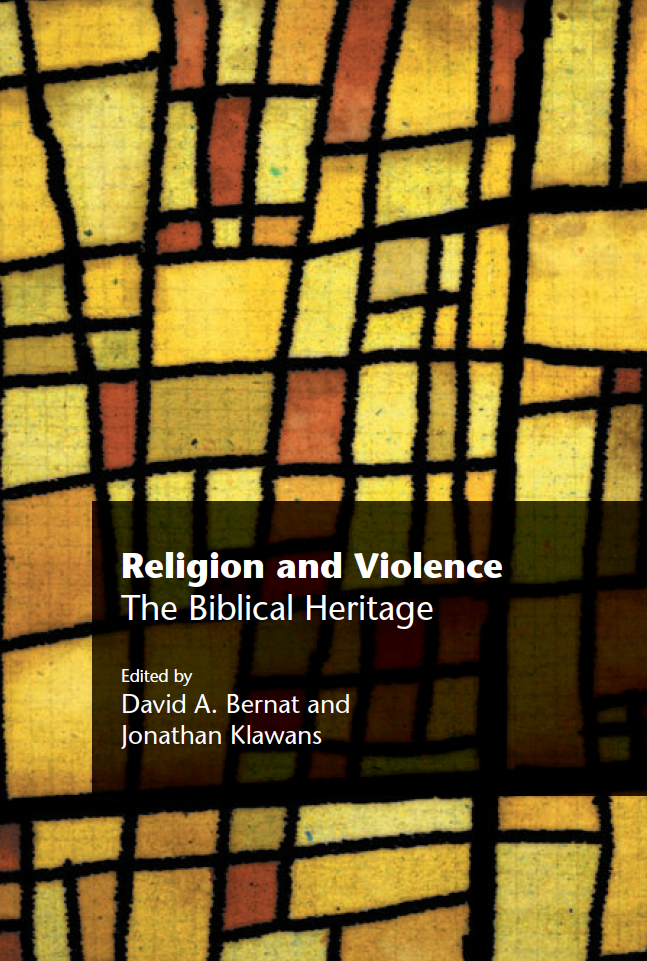
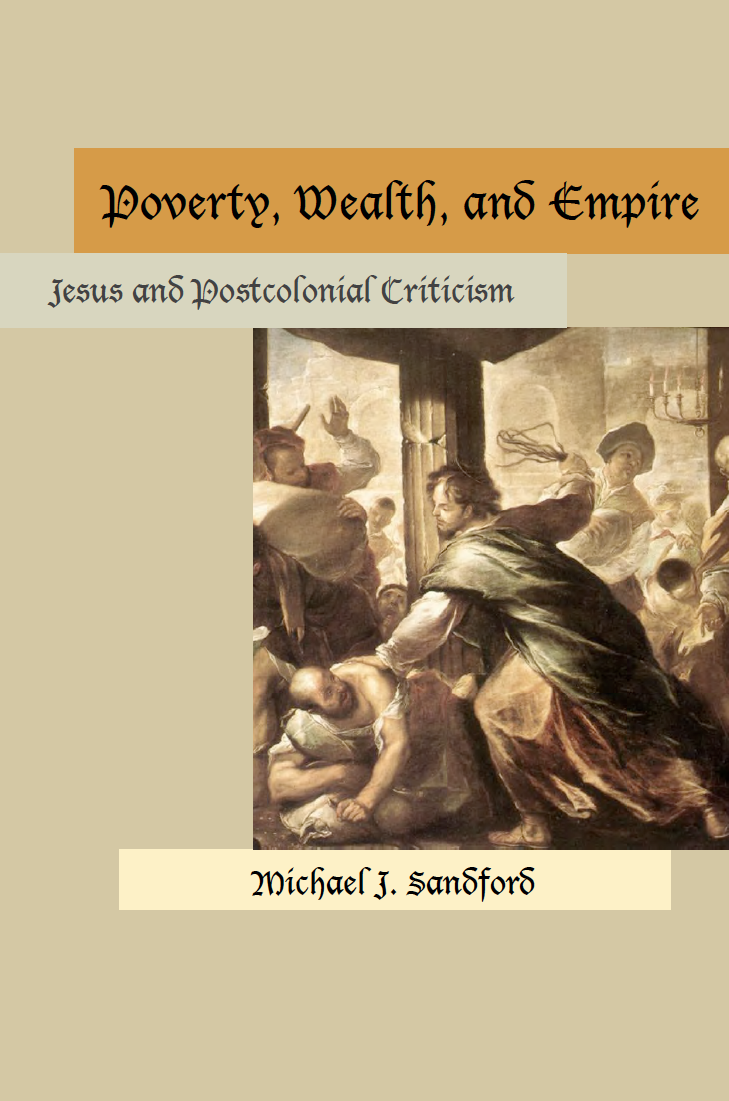
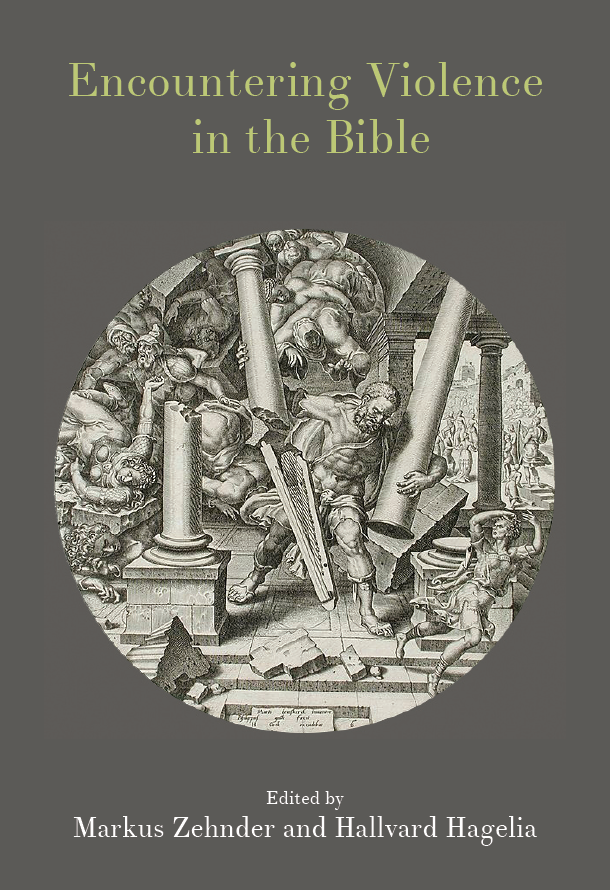
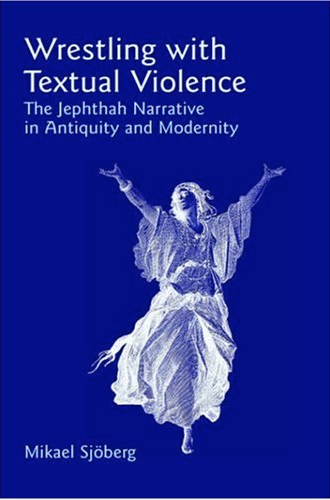
Nahum, Second Edition
Nahum, Second Edition